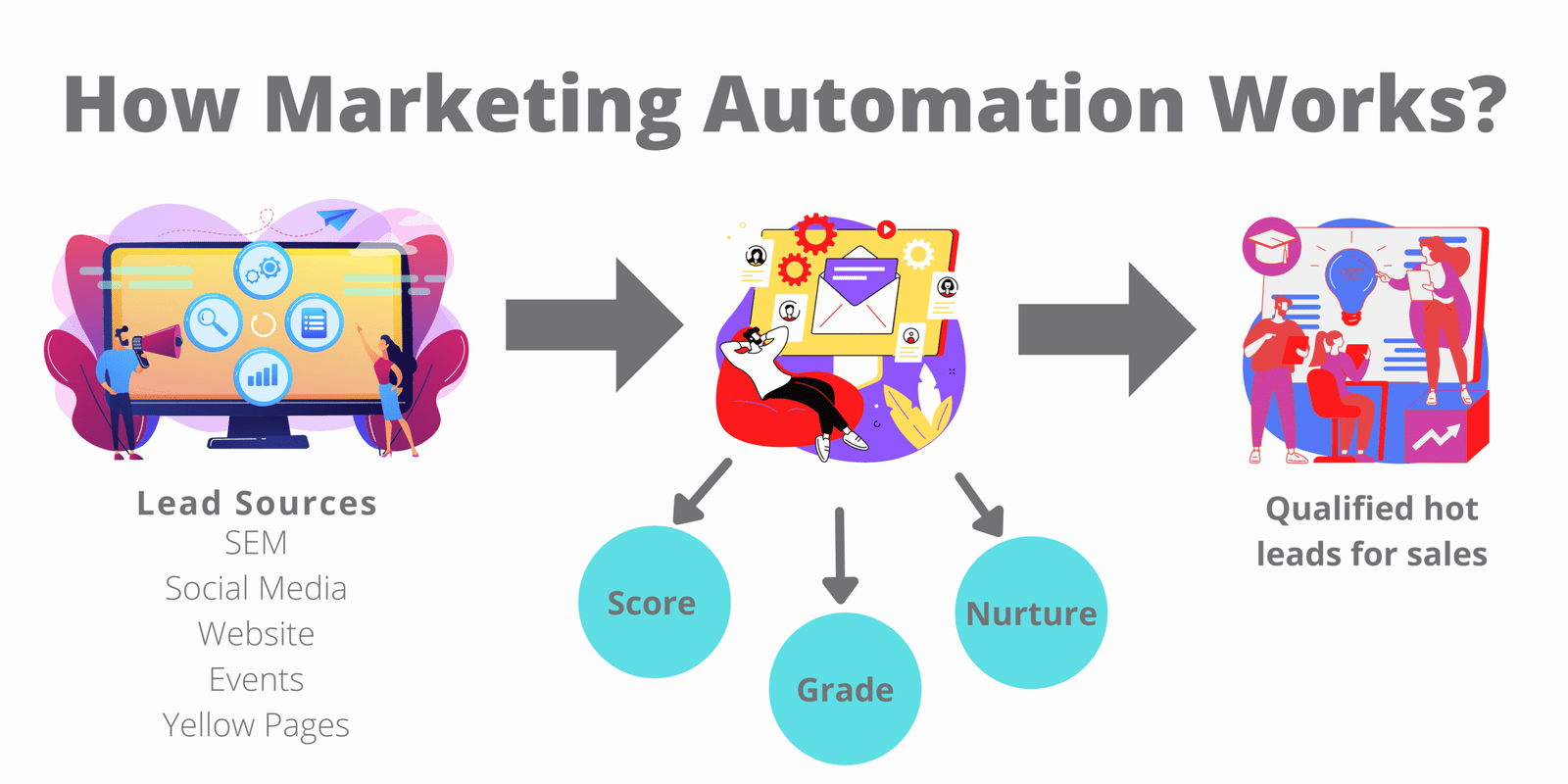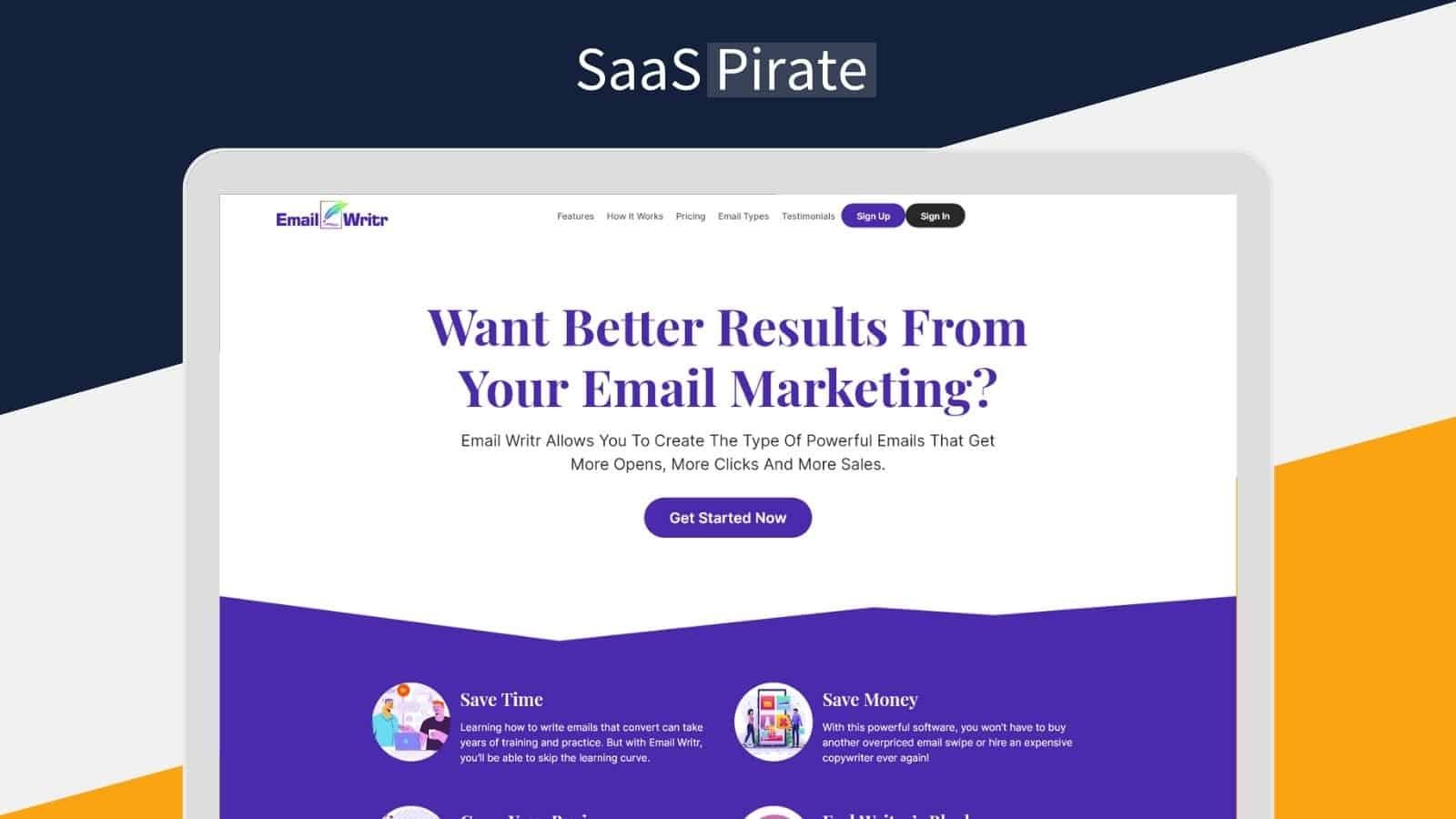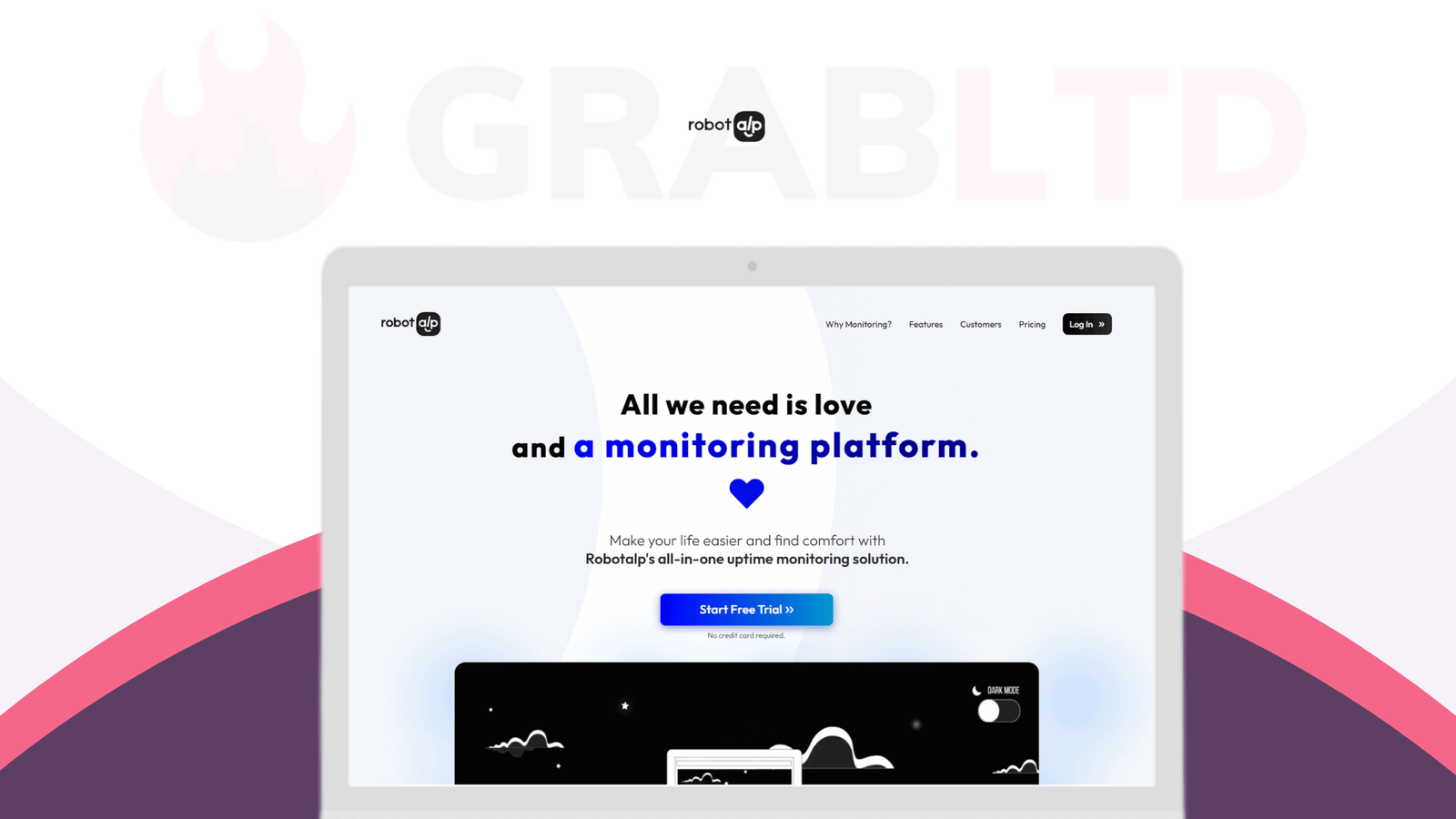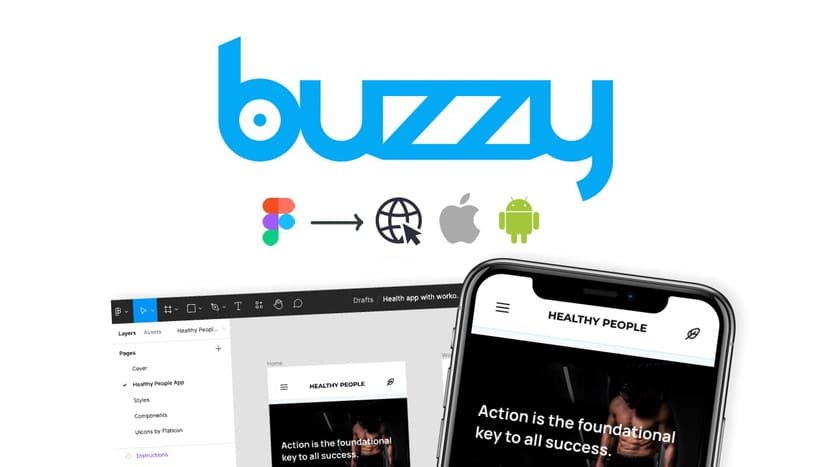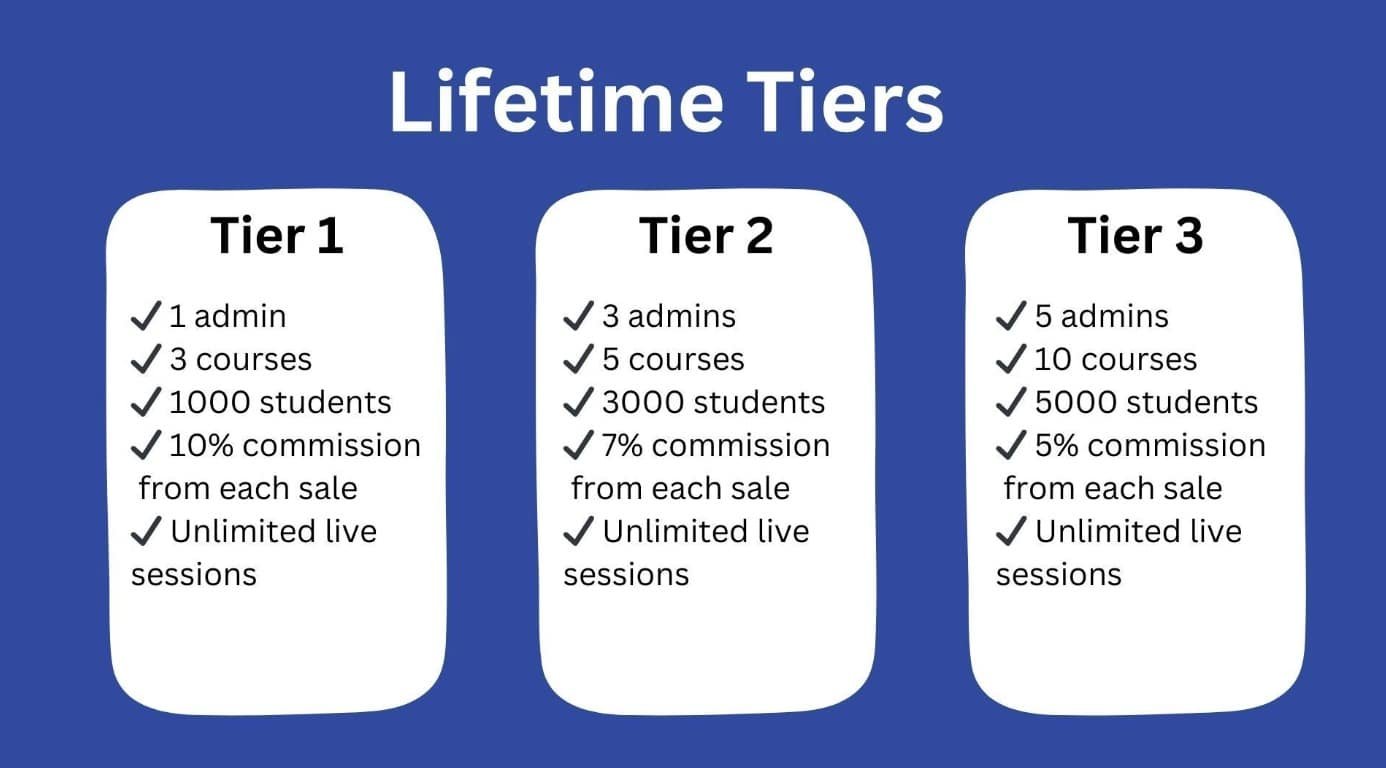Marketing automation software helps businesses streamline their marketing tasks. It saves time and boosts efficiency.
But how does it actually work? In today’s fast-paced world, businesses need to stay ahead. Marketing automation software does just that by handling repetitive tasks. This software manages email campaigns, social media posts, and more. It tracks customer behavior and personalizes content.
This means businesses can reach the right audience at the right time. Understanding how this software works can help you make the most of your marketing efforts. Ready to explore the inner workings of marketing automation? Let’s dive in and see how it can transform your marketing strategy!
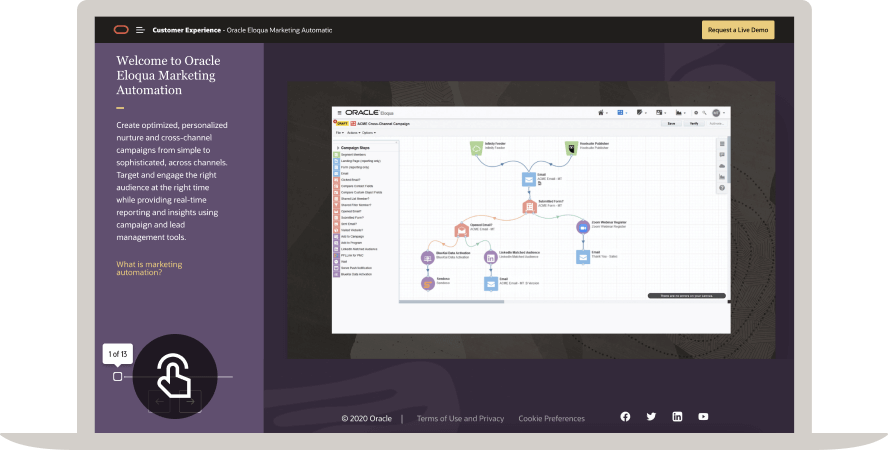
Credit: www.oracle.com
Introduction To Marketing Automation
Marketing automation has become a buzzword in the digital marketing world. But what does it really mean? How can it help you streamline your marketing efforts and boost your business? This post will give you a clear understanding of marketing automation, its importance, and how it works.
Definition
Marketing automation refers to the use of software to automate repetitive marketing tasks. This includes activities like email marketing, social media posting, and ad campaigns. The goal is to save time and improve efficiency.
Imagine not having to manually send out each email to your subscribers. Instead, you set up a system that sends emails automatically based on user behavior. This is marketing automation in action.
Importance
Why is marketing automation crucial for your business? First, it saves time. You can focus on strategy and creativity instead of routine tasks. This means more productive work hours.
Second, it increases your reach. Automated campaigns can target large audiences with personalized messages. This approach can lead to better engagement and higher conversion rates.
Third, it provides valuable insights. You can track the performance of your campaigns in real-time. This allows you to make data-driven decisions and optimize your marketing efforts.
Have you ever felt overwhelmed by the sheer volume of marketing tasks? Marketing automation can be your solution. It helps you stay on top of your game without burning out.
So, are you ready to explore the world of marketing automation? Let’s dive deeper and discover how it can transform your marketing strategy.
Key Features
Marketing automation software can simplify your marketing efforts by automating repetitive tasks. Key features of this software include email marketing and social media automation. These features help you maintain a consistent presence and engage with your audience effectively.
Email Marketing
Email marketing automation allows you to send personalized emails to your subscribers without manual intervention. You can set up email campaigns to nurture leads, welcome new subscribers, or promote products. Imagine waking up to find that your latest product launch email was sent to thousands of subscribers overnight, all while you were asleep.
Automation software lets you segment your audience based on their behavior or preferences. This ensures your emails are relevant and engaging. Have you ever received an email that felt like it was written just for you? That’s the power of segmentation.
You can track open rates, click-through rates, and conversions easily. This data helps you refine your strategies. Seeing which emails get the most engagement can guide your future campaigns.
Social Media Automation
Social media automation tools schedule and post content across your social media channels. This saves you the hassle of manual posting. Imagine having a month’s worth of posts lined up, ready to go, while you focus on other tasks.
These tools also allow you to monitor engagement and interactions. You can respond to comments and messages efficiently, keeping your audience engaged. Have you ever missed replying to a comment because you were busy? Automation tools ensure that doesn’t happen.
Analytics provided by these tools help you understand your audience better. You can see which posts perform well and why. This insight can help tailor your content to match your audience’s preferences.
Marketing automation software is a game-changer for your business. By leveraging its key features, you can save time, increase efficiency, and engage your audience effectively. Isn’t it worth exploring how these tools can benefit your marketing strategy?
Benefits
Marketing automation software offers many benefits. It helps businesses streamline their processes. These tools save time, effort, and money. They also make marketing more effective. Let’s explore some key benefits of marketing automation.
Efficiency
Marketing automation software boosts efficiency. It handles repetitive tasks, like sending emails. This frees up time for your team. They can focus on more important work. The software also reduces human error. Automated processes are consistent and accurate. This ensures your marketing campaigns run smoothly.
Personalization
Personalization is key in marketing. Automation software helps you tailor messages to each customer. It uses data to understand their preferences. You can send targeted content based on their behavior. This makes your marketing more relevant. Customers feel valued and understood. Personalized messages increase engagement and conversion rates.
Popular Tools
Choosing the right marketing automation software can transform how you manage your campaigns. But with so many options, how do you decide which is best for you? Let’s dive into some of the popular tools that can take your marketing to the next level.
Top Platforms
Several marketing automation platforms dominate the market today. Each offers unique features tailored to different business needs. Below are some top contenders you should consider:
- HubSpot: Ideal for businesses looking for an all-in-one solution. It integrates CRM, email marketing, and analytics.
- Marketo: A powerful tool for larger enterprises. It specializes in lead management and B2B marketing.
- ActiveCampaign: Best for small to medium-sized businesses. It combines email marketing, automation, and sales automation.
- Pardot: Salesforce users will find Pardot especially useful. It focuses on B2B marketing automation and offers deep CRM integration.
Have you tried any of these tools? If not, you might be missing out on opportunities to streamline your marketing efforts.
Comparison
How do these tools stack up against each other? Let’s take a closer look:
| Feature | HubSpot | Marketo | ActiveCampaign | Pardot |
|---|---|---|---|---|
| Ease of Use | High | Medium | High | Medium |
| Best For | All-in-one solution | Large enterprises | SMBs | Salesforce users |
| Pricing | $$$ | $$$$ | $$ | $$$ |
| Customer Support | 24/7 | Business hours | 24/7 | 24/7 |
HubSpot and ActiveCampaign are user-friendly, perfect if you’re new to marketing automation. Marketo and Pardot offer advanced features suited for large enterprises and Salesforce users. The choice depends on your specific needs.
Consider the long-term benefits and not just the immediate cost. Sometimes a higher-priced tool can save you more in the long run by automating complex tasks.
What features are most important to you? Ease of use, integration, or perhaps customer support? Answering these questions will help you make an informed decision.
Implementation Process
The implementation process of marketing automation software involves several steps. Each step is crucial for ensuring smooth operation and maximum benefits. This guide will walk you through the key stages of this process, making it easy to follow and understand.
Choosing Software
The first step is selecting the right software. You should consider your specific needs and goals. Look for user-friendly options with good reviews. Compare features and pricing to find the best match.
Integration
Next, integrate the software with your existing systems. This often includes connecting to your CRM, email platform, and social media accounts. Proper integration ensures all systems work together seamlessly. This step can be complex, so having technical support can be helpful.

Credit: encharge.io
Best Practices
Marketing automation software can significantly streamline your marketing efforts. To truly harness its power, you must follow best practices. This ensures that your campaigns are effective and resonate with your audience.
Segmentation
One of the key best practices in using marketing automation software is segmentation. By dividing your audience into smaller, more targeted groups, you can tailor your messaging to meet their specific needs and interests. This increases the relevance of your campaigns, leading to higher engagement rates.
Imagine sending a product promotion to a group of users who have shown interest in similar products. The chances of them making a purchase are much higher compared to a generic message sent to everyone on your list.
Use data from past interactions, purchase history, and demographics to create these segments. For example, you can segment your audience based on age, location, or behavior. This not only makes your marketing efforts more effective but also helps in building a stronger relationship with your customers.
Analytics
Another best practice is leveraging analytics. Marketing automation software provides a wealth of data that you can use to refine your strategies. Regularly review your campaign metrics to see what’s working and what’s not.
Pay attention to open rates, click-through rates, and conversion rates. These metrics can tell you a lot about how your audience is interacting with your content. If a particular email campaign has a low open rate, it might be time to rethink your subject lines.
Don’t just look at the numbers—interpret them. What story do they tell about your audience’s preferences and behaviors? Use these insights to tweak your campaigns and improve future performance.
Have you ever wondered why some campaigns perform better than others? The answer often lies in the data. By consistently analyzing your results, you can make informed decisions that drive better outcomes.
Case Studies
Marketing automation software can transform your business. But how does it work in real-life scenarios? Let’s look at some case studies that showcase its potential.
Successful Campaigns
One company saw a 30% increase in lead generation after implementing marketing automation. They automated their email campaigns and personalized content for different segments. This allowed them to reach the right audience at the right time.
Another business used marketing automation to improve customer retention. By sending timely follow-up emails and offers, they reduced churn by 25%. The software tracked customer behavior, enabling them to send more relevant messages.
These successes aren’t isolated cases. Many businesses have seen impressive results. What can you learn from their experiences?
Lessons Learned
Start small. One company learned that automating everything at once can be overwhelming. They began with email campaigns, then gradually added more features.
Test and optimize. Another key lesson is the importance of A/B testing. One business found that tweaking their email subject lines led to a 15% higher open rate.
Don’t forget the human touch. While automation can handle many tasks, personal interactions still matter. One company discovered that combining automated messages with occasional personal follow-ups significantly boosted customer satisfaction.
What’s your takeaway from these lessons? Think about how you can apply them to your marketing strategy.
Future Trends
Marketing automation software streamlines tasks, such as email campaigns and social media posting. It helps businesses target customers more effectively. This technology saves time and improves marketing efficiency.
When we think about the future trends in marketing automation software, several exciting developments come to mind. These advancements promise to make marketing efforts more efficient and effective. Let’s take a closer look at two key trends: AI Integration and Data Privacy.Ai Integration
AI integration is transforming marketing automation. Imagine software that can predict customer behavior based on past interactions. This allows you to tailor your marketing campaigns in real-time. For example, AI can help in segmenting your audience more accurately. It can analyze customer data and identify patterns that a human might miss. This means your messages reach the right people at the right time. Voice assistants are another area where AI is making a mark. Picture a scenario where a customer asks their smart speaker about your product. AI can ensure that the information provided is personalized and relevant.Data Privacy
Data privacy is becoming increasingly important. With regulations like GDPR, you need to be more careful about how you handle customer data. This is where marketing automation software can help. Good software ensures that you collect data responsibly. It provides tools to manage consent and comply with regulations. This not only keeps you on the right side of the law but also builds trust with your customers. Consider using anonymized data for your campaigns. This means you can still gain insights without compromising privacy. Customers appreciate this and are more likely to engage with your brand. In summary, staying ahead in marketing automation involves embracing AI and prioritizing data privacy. These trends are not just buzzwords—they are the future. How will you adapt your strategies to keep up?
Credit: www.constantcontact.com
Frequently Asked Questions
How Does Marketing Automation Work?
Marketing automation uses software to automate repetitive tasks. It helps manage campaigns, track customer behavior, and nurture leads. This improves efficiency and personalizes customer interactions.
How Does Automation Software Work?
Automation software performs tasks using predefined rules and scripts. It streamlines processes, reduces human error, and increases efficiency.
How Does Marketing Software Work?
Marketing software automates and manages marketing tasks. It helps with email campaigns, social media, content creation, and tracking analytics. The software enhances efficiency and effectiveness by providing insights and optimizing strategies.
Is Marketing Automation The Same As Crm?
No, marketing automation is not the same as CRM. Marketing automation focuses on automating marketing tasks, while CRM manages customer relationships.
Conclusion
Marketing automation software simplifies many tasks. It saves time and increases efficiency. Businesses can easily track campaigns and manage leads. This software helps in understanding customer behavior better. Marketing strategies become more effective and targeted. Implementing it can lead to improved results.
So, consider integrating marketing automation software. It can boost your marketing efforts significantly.

